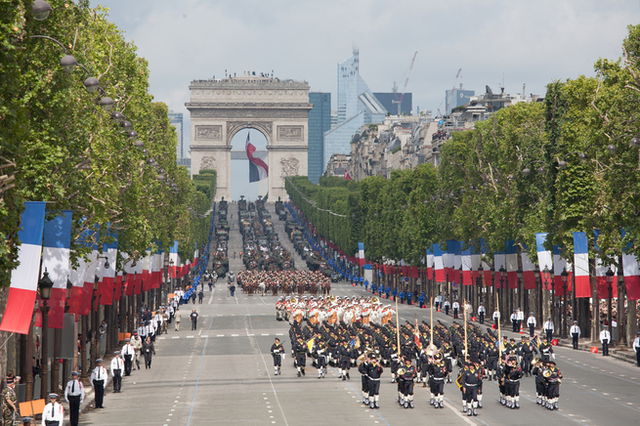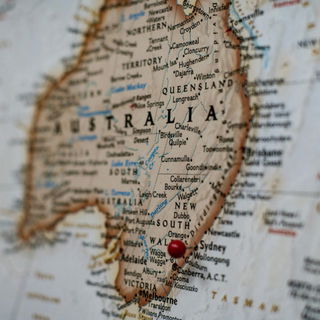- Calendar
- Calendar 2025
- July
- Bastille Day
Bastille Day
14th of July, also known as the Bastille Day, is marked as one of the revolutionary days of Paris. It is a statutory holiday in France. On 14th July 1789, the storming of the Bastille occurred.
The day honors the storming of the Bastille in 1789 which was a turning point in French history that led to the French Revolution and eventually established the Republic.
It is not just a celebration but of a historical event but a symbol of liberty, unity, and the national identity of France.
On the anniversary of the act in 1790 or 'Fête de la Fédération', Bastille Day was celebrated and is still commemorated in France. Military parades, dances, and fireworks are part of the celebration on this day.

History
France was in a critical condition leading up to the storming of the Bastille. The country was in the face of severe unrest and instability, including economic crisis, social discontent, and public anger against the ruling monarchy. This state of chaotic and tense conditions led to a state of disorder and upheaval.
The monarchy was excessively spending the country's expenses and were getting involved in expensive wars like the American Revolution. Furthermore, famine across the country and skyrocketing prices of the bread made it extremely difficult for common people to make a living and survive.
Discrimination based on class further fueled the discontent among the population. These factors all played crucial roles that eventually led up to the Storming of the Bastille.
Storming of the Bastille — July 14, 1789
The Bastille was targeted as it became the symbolic representation of the oppressive rule of the Bourbon monarchy. It was a state prison where political prisoners were held without trial, representing the king's arbitrary power. The attack on the Bastille was both a strategic and symbolic act against the royal authority in Paris, marking the beginning of the French Revolution.
The early months of the French Revolution were filled with much distress and disturbance in Paris. On the sunrise of 14th July 1789, the storming of the Bastille was initiated. A revolutionary mob from the Faubourg Saint-Antoine took charge of the revolt and attack. The attack on Bastille was a strategic and iconic movement against the royal representative in central Paris.
The people of Paris seized all weapons from the armory in the Invalides and marched into the ancient Royal fortress, Bastille. Many firing rounds took place, after which the people could finally enter the fort. By late afternoon, they successfully freed the seven prisoners held there. This was the first movement of the French Revolution that carved a significant date in French history.
The fortress or prison was pulled down between 14th July 1789 and 14th July 1790. Later miniature Bastille replicas were made with 83 stones from the original fortified prison. The medieval fortress was situated in Place de la Bastille.
Fête Nationale- July 14, 1790
In France, Bastille Day is also called 'Fête Nationale', or 'le quatorze Juillet', or France Day of Defiance.
Bastille Day is not directly connected with the 14th July 1789 storming of the Bastille. The day was first celebrated a year later with the 'Fête de la Fédération' (celebrating the French Revolution) at the Champ de Mars which was in the outskirts, far away from the center of Paris.
A convenient place and a stadium were set up in Champ de Mars by thousands of volunteers. Steps for 100,000 spectators were built.
On 14th July 1790, thousands of people gathered together in the stadium to celebrate the unity of their new French nation and their national reconciliation. The Commune of Paris suggested the National Assembly organize a 'general federation.'
14th of July, or Bastille Day, is also the Independence Day of France.
The Evolution of Bastille Day To A National Holiday
However, in subsequent years, the commemoration of this day was withheld. Later in 1880, 6th July, Bastille Day was declared an official holiday in France. It took 91 years for 14th July to become a statutory holiday and, solidifying its place as the National Day of France.
The Bastille Day military parade is known to be the largest and oldest regular military parade in Europe. The old slogan “Long live the 14th of July!” or “Vive le 14 juillet!” continued being an essential part of the celebration.
The national holiday is also celebrated in all former French colonies and places linked with France. In the year 1924, the first Bastille Day Ball took place. People gathered to make a new move and celebrate this day. Henceforth, it has become an annual tradition in France.
Bastille Day Celebrations
Bastille Day is celebrated with huge military parades, especially the parade on the Champs-Élysées in Paris is extremely popular.
It is attended by the President, French senior officials, and foreign guests. Fireworks showcases, particularly the one at Champ de Mars, that lights up the night sky on July 13th and 14th.
The celebrations also consist of musical performances, dances, communal meals and public parties across the country.
Well, Bastille Day is not only celebrated in France, but also in former French colonies and places that have significant French influence.
Bastille Day, or 'le quatorze Juillet,' is a powerful reminder of France's journey toward liberty, equality, and fraternity.
This is the time for French citizens to celebrate their shared history and national pride, honoring the revolutionary spirit of 1789.

Other Celebrations
-
Feb 13 Thu
-
Apr 22 Tue
-
May 12 Mon
-
Jun 04 Wed
-
Sep 10 WedBravehearts Day (White Balloon Day)
-
Mar 01 Sun

Bastille Day - Next years
Tuesday, 14 July 2026
Wednesday, 14 July 2027
Friday, 14 July 2028










